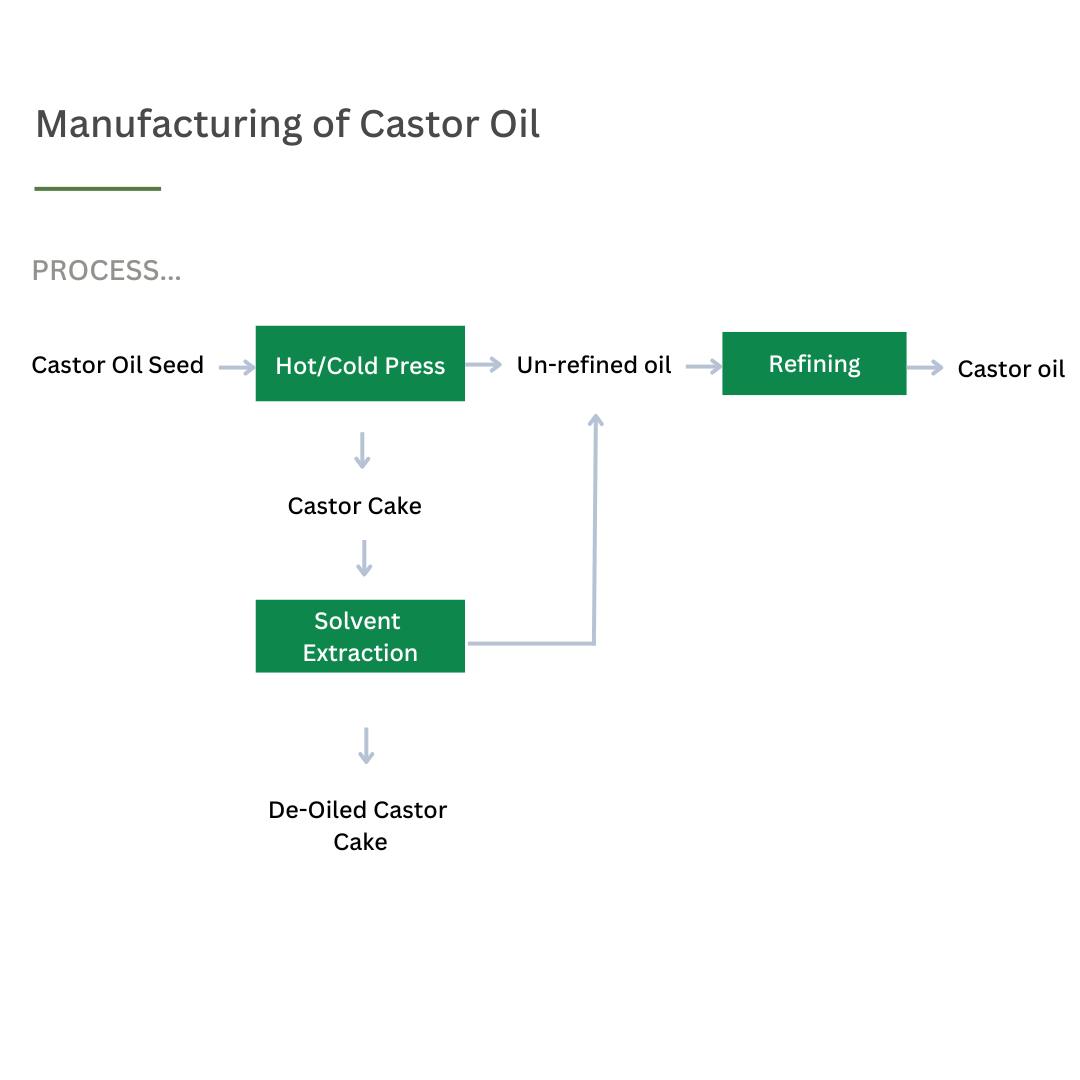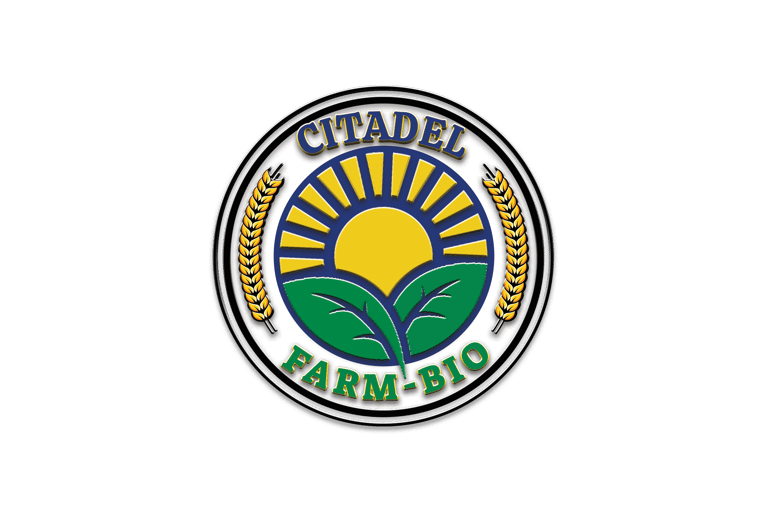Haitian Black Castor Oil
WE SELL WHOLESALE
CITADEL FARM-BIO is a leading provider of Haitian black castor oil (Maskriti) in bulk, committed to offering high-quality, organic products at a reasonable price. In addition to castor oil, the company wholesales a variety of agricultural goods, ensuring consistent supply to avoid stock shortages. CITADEL FARM-BIO supports local farmers and sustainable practices, promoting economic development in Haiti through its dedication to quality and affordability in the wholesale market.
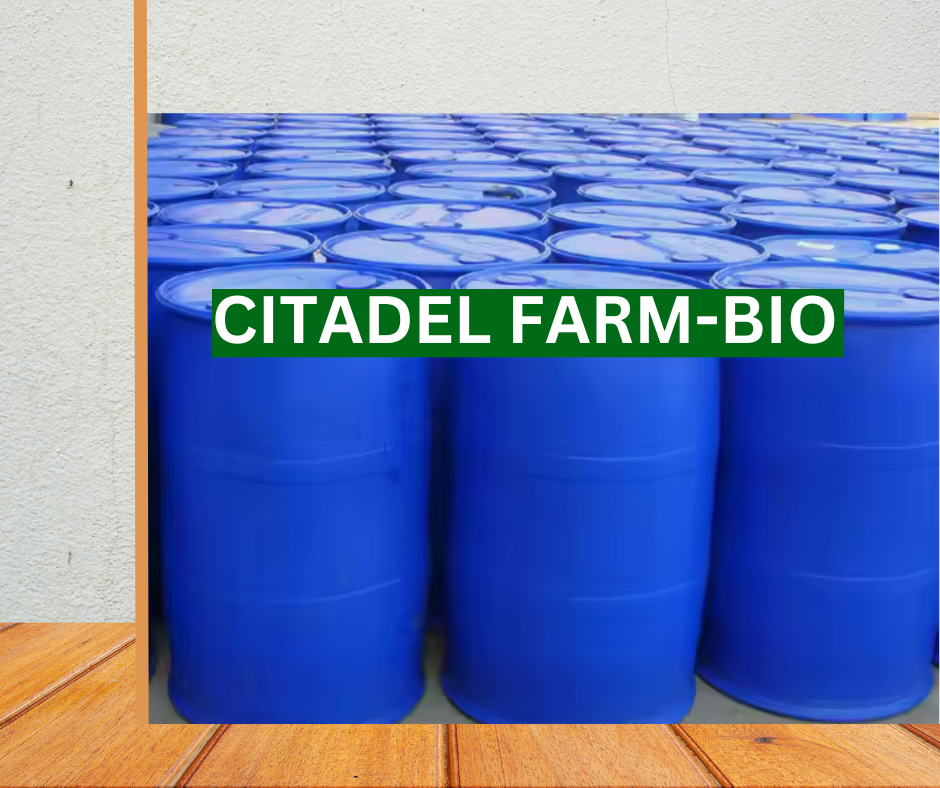

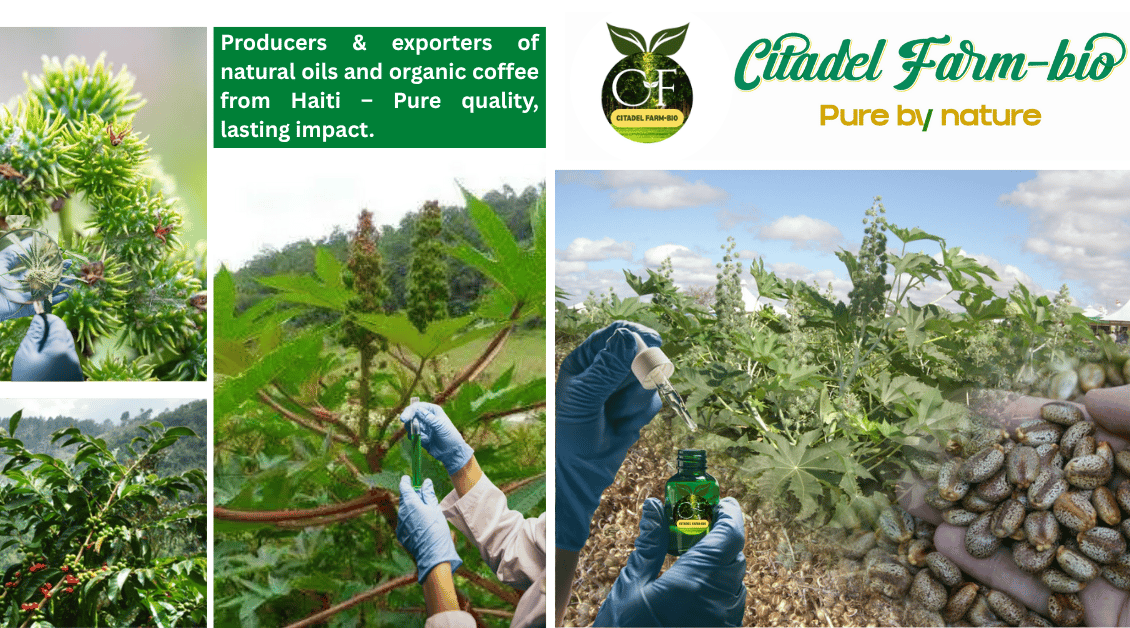

Pain Relief Back Body Massager Ball Manual Massage Roller Massage Tools for for Sore Muscle Joint Pain Essential Oils
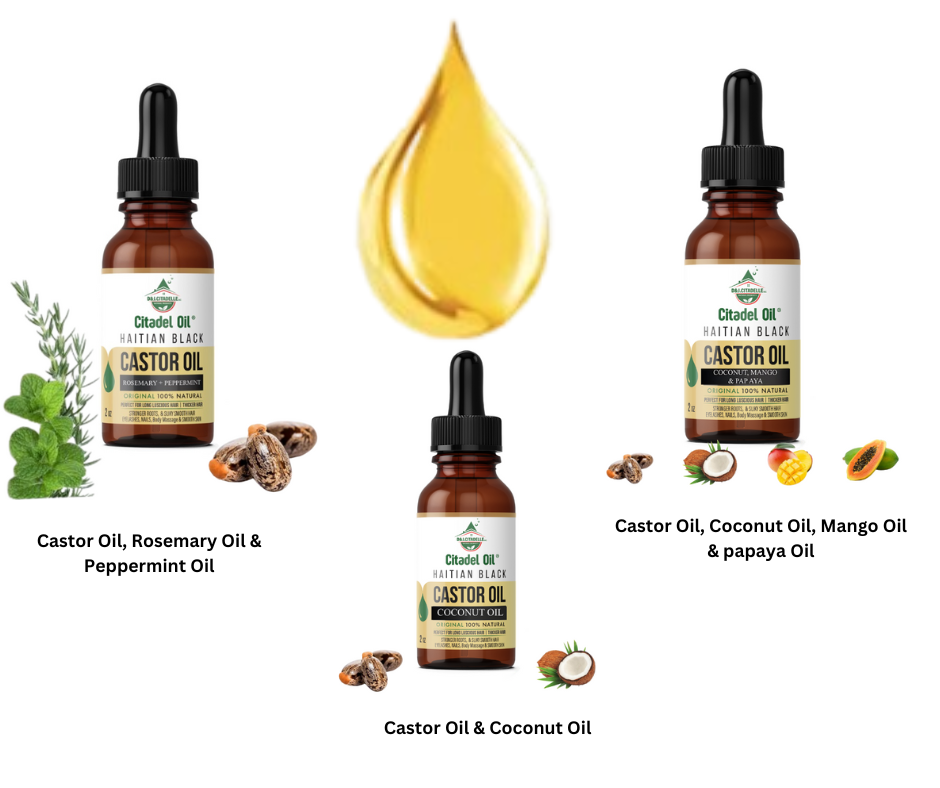



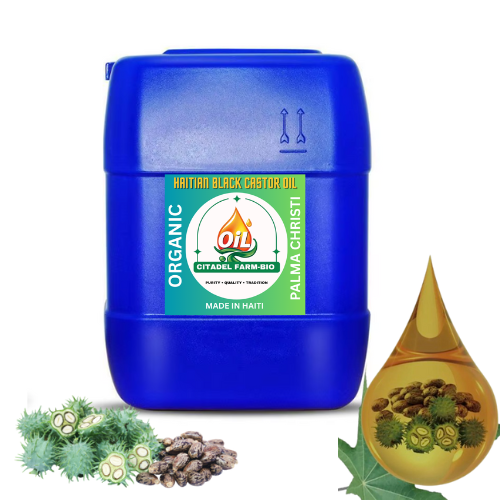

Pure Natural Castor Oil: Wholesale organic oil perfect for skin, hair, face, eyebrows, and body massage. Promotes hydration, hair growth, and rejuvenation with 100% natural purity.
Supply Type: OEM/ODM
Place of Origin: Merebalais / Port a Piment HAITI
Type: OILS
Product name:Haitian Black Castor Oil, Rosemary, peppermint, Coconut, papaya & Mango
Appearance: Light and dark yellow liquid
Extraction Method: Cold and hot pressing
Ordor: Fresh smell
WE SELL WHOLESALE
Wholesale price bulk natural 100% pure organic Haitian Black castor oil in stock
Natural oils & organic coffee from Haiti – Pure by Nature.
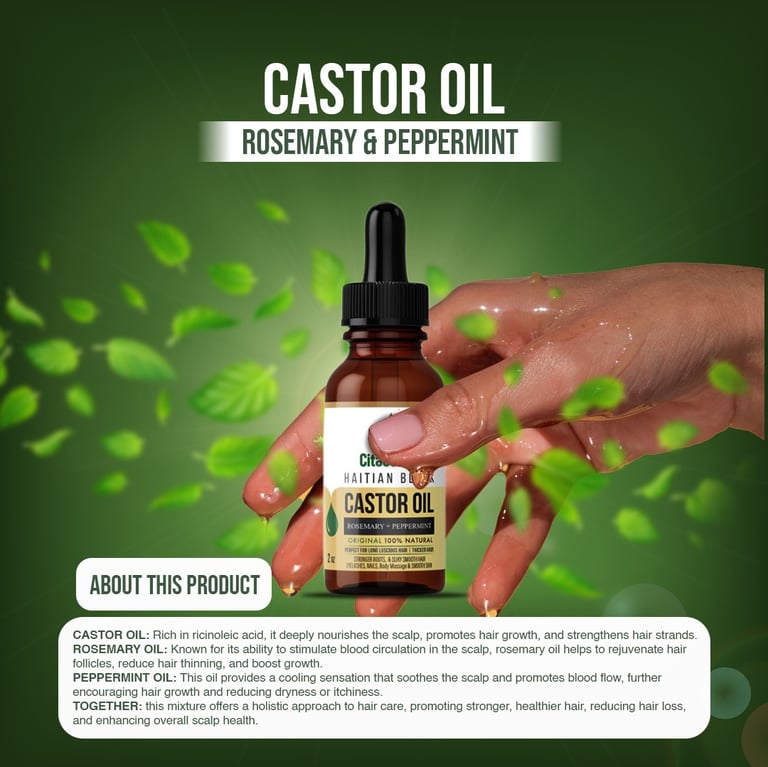




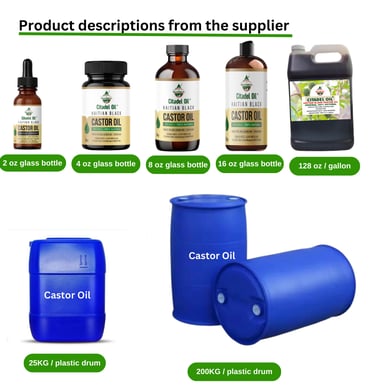
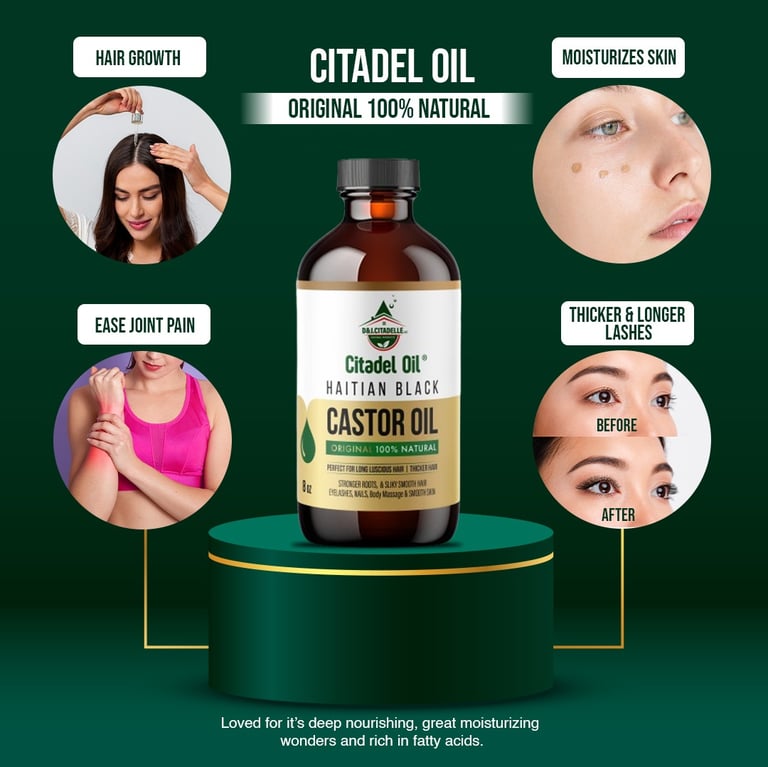

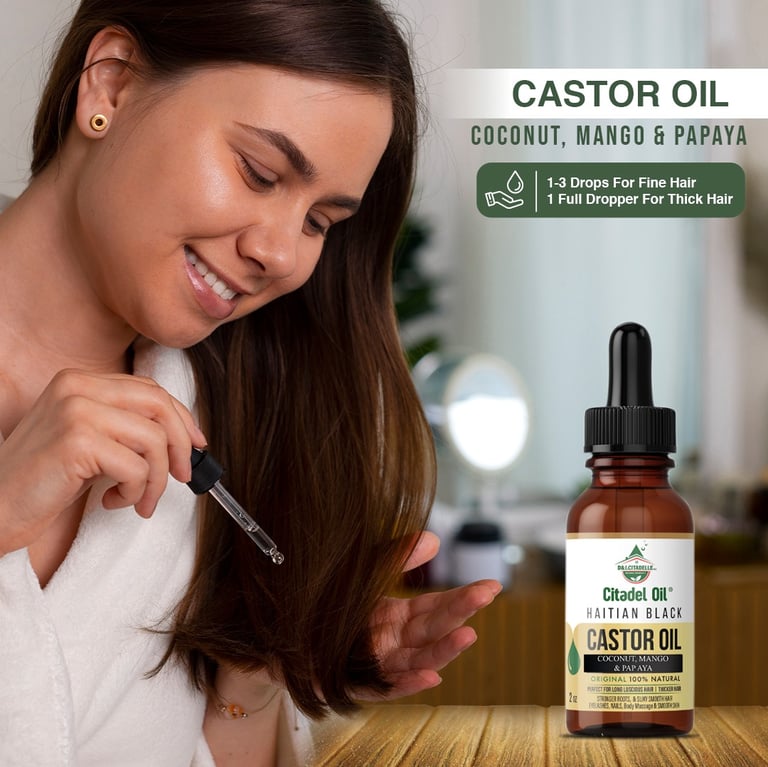

Castor oil is renowned for its potential benefits in hair care. Rich in ricinoleic acid, it enhances scalp circulation, promoting healthier hair growth. Its moisturizing properties help lubricate the hair shaft, increasing flexibility and decreasing the chance of breakage. Additionally, castor oil's anti-inflammatory and antimicrobial properties can soothe the scalp and reduce dandruff. Regular application may lead to stronger, shinier hair.


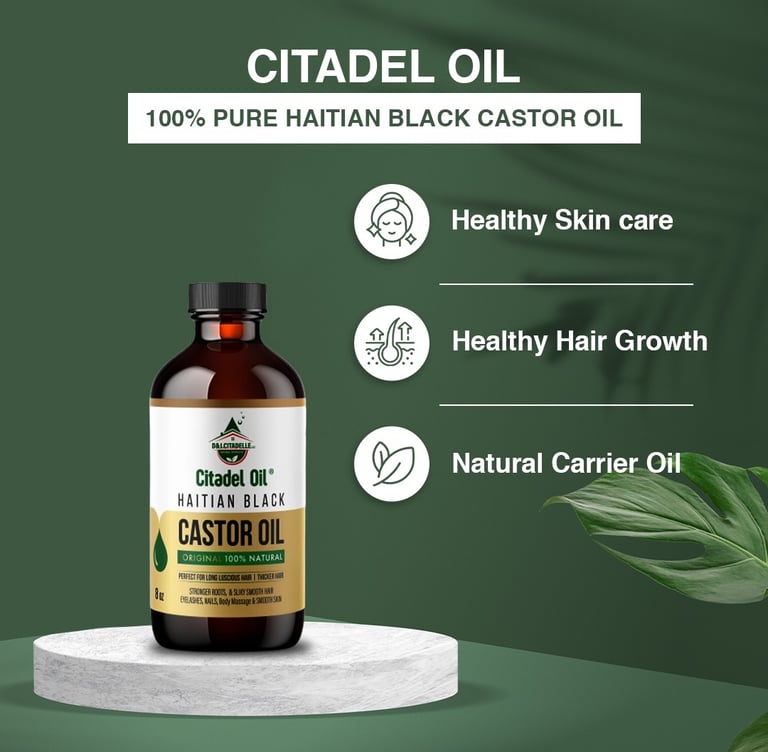

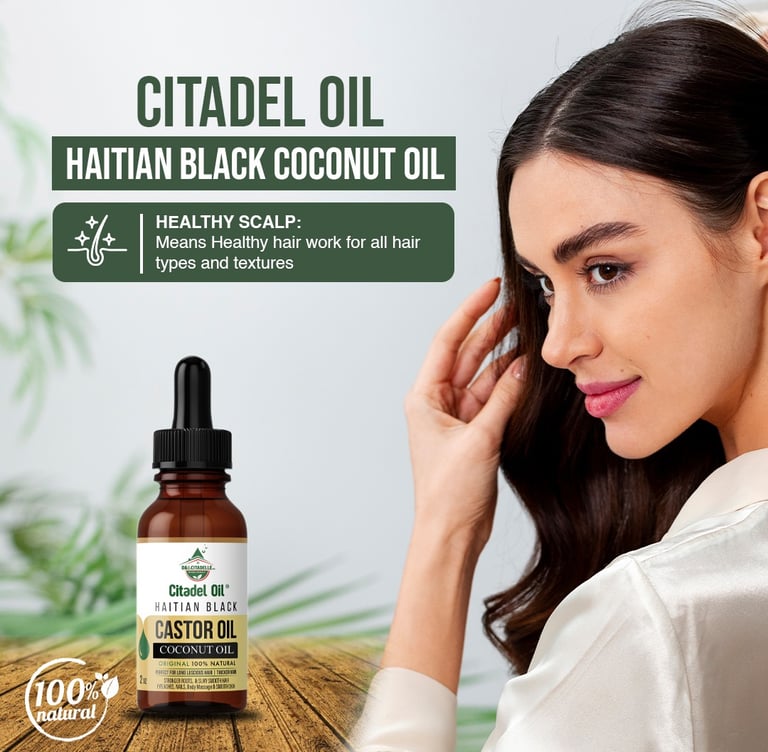

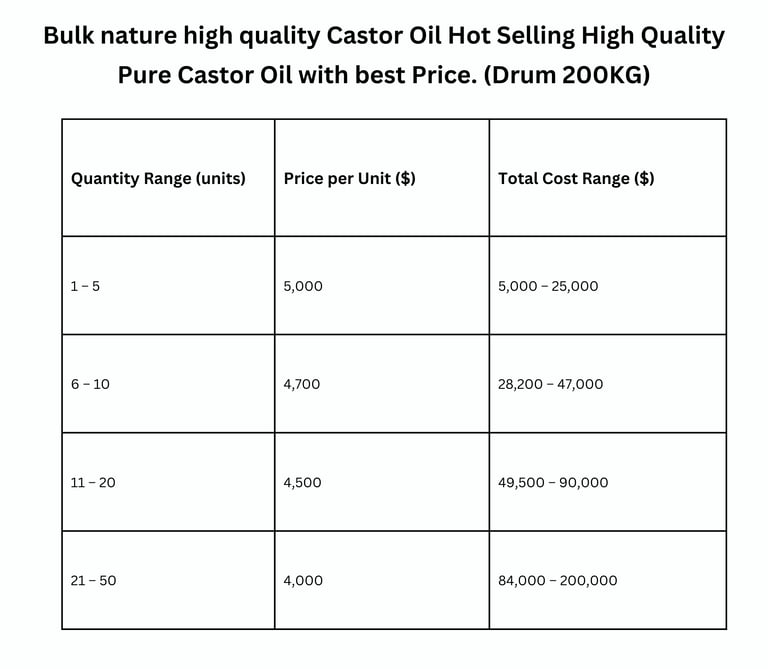

Bulk nature high quality Castor Oil Hot Selling High Quality Pure Castor Oil with best Price. (Drum 200KG)
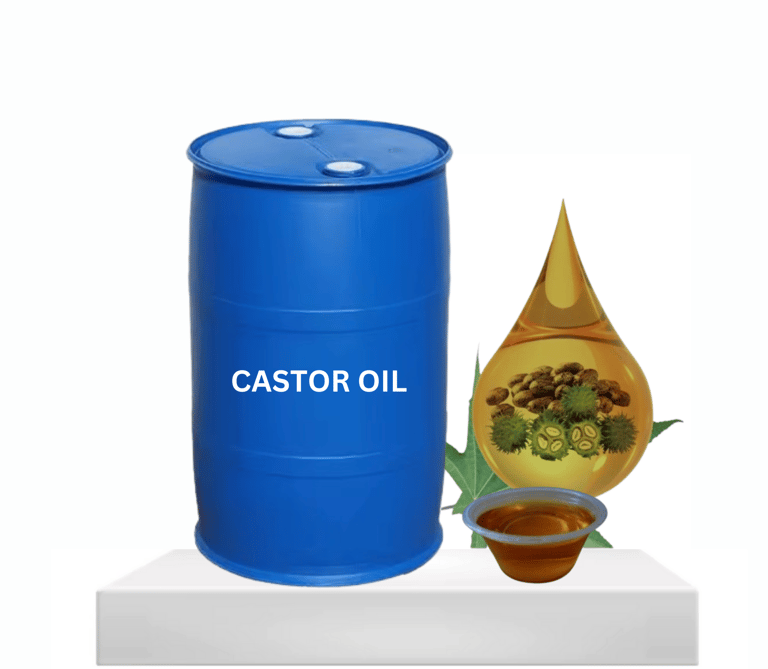

HAITIAN COFFEE
Haitian coffee is an organic coffee grown without synthetic chemicals, cultivated in the rich volcanic soil of Haiti's mountainous regions. This traditional farming method preserves the environment and enhances the coffee's rich, bold flavor, making it a high-quality, natural product.
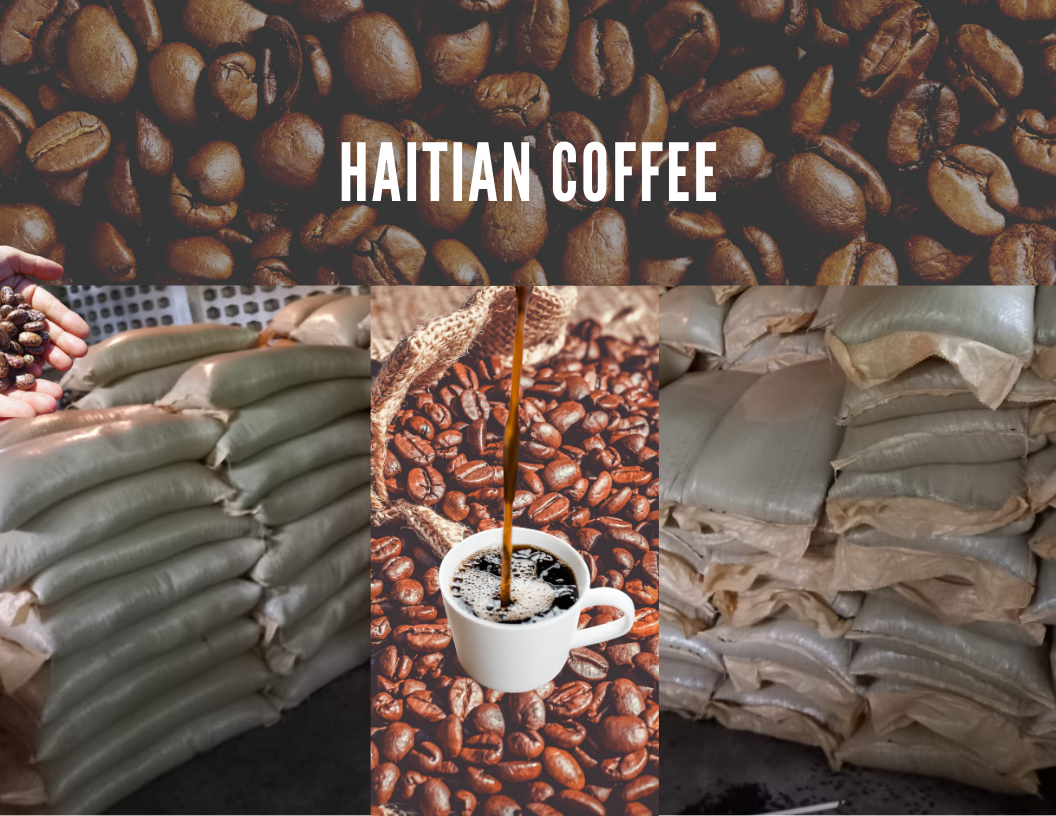

Weight. $ / lb. Price
1 lb bag $13.75 / lb. $14.75
3 lb bag. $13.75. $42.80
5 lb bag. $13.45 / lb. $69.25
10 lb bag. $13.30 / lb $135.00
15 lb bag. $13.22 / lb. $199.30
25 lb bag. $13.15 / lb. $329.75
50 lb bag. $13.00 / lb. $651.00
Select your bag weight
Starting at $13.75 / lb.
As low as. $13.00
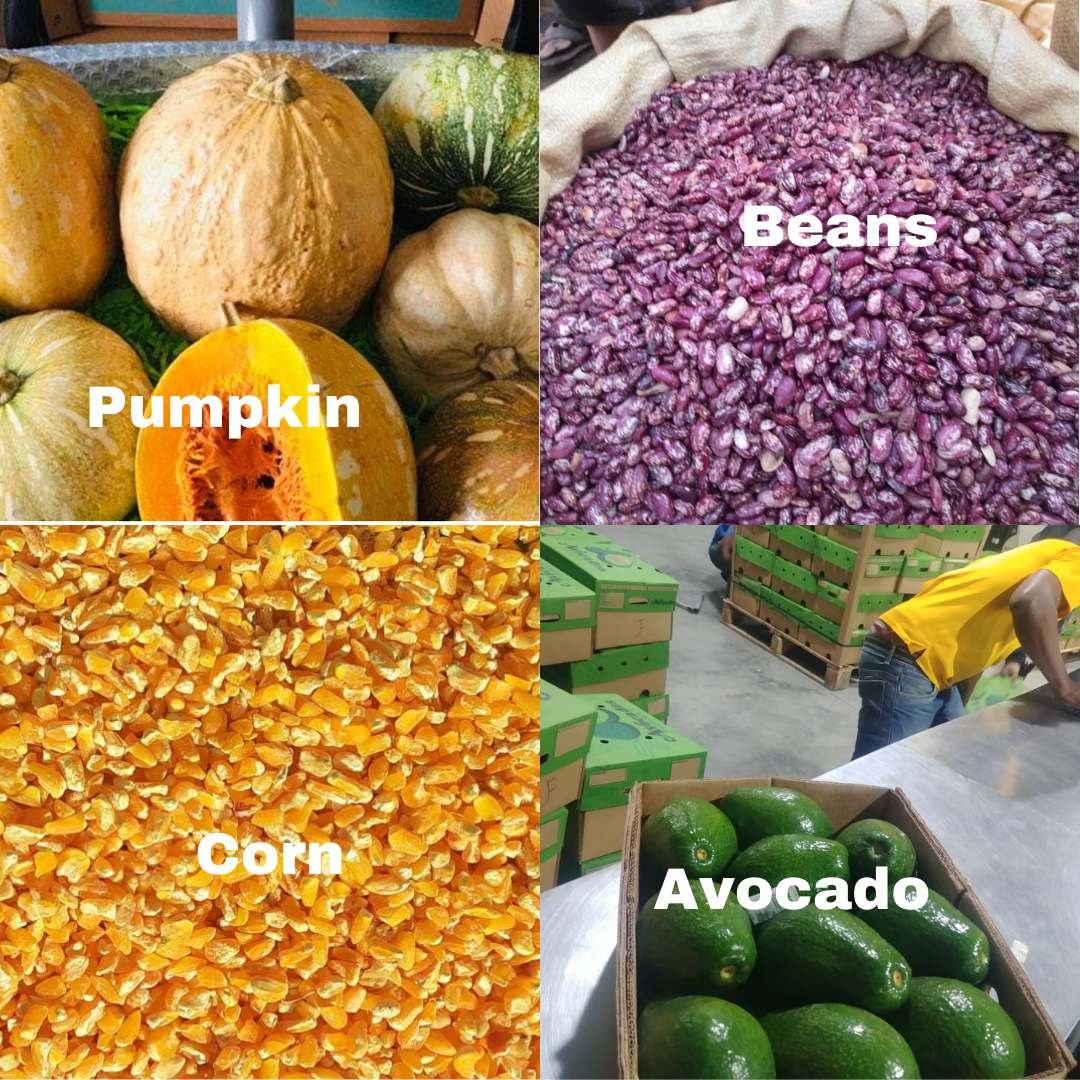

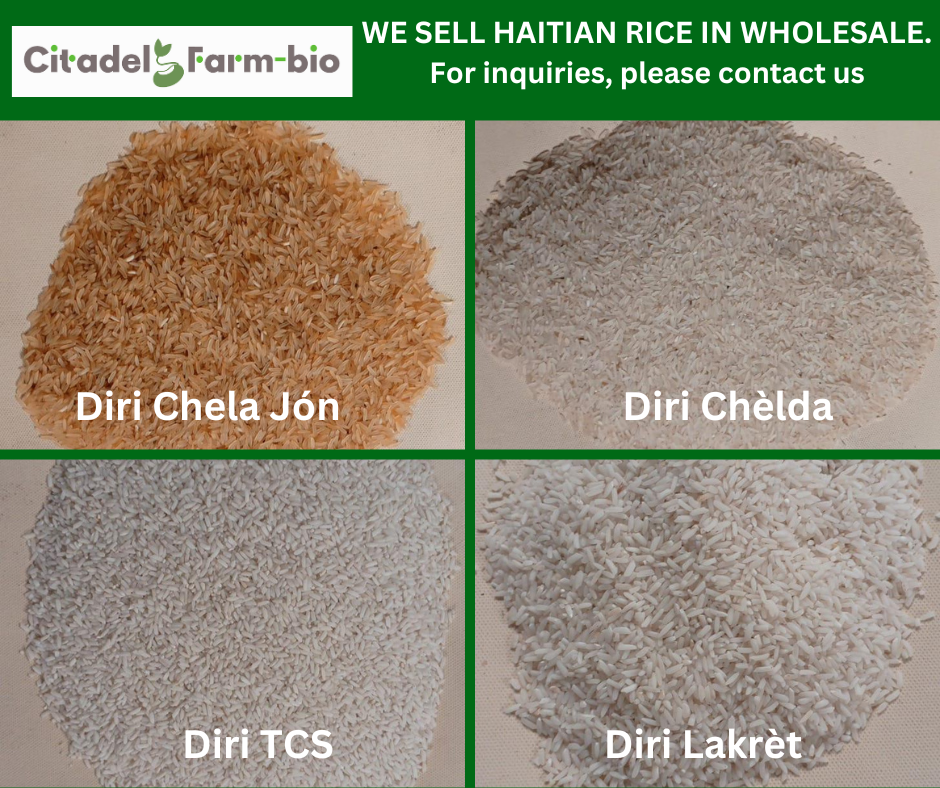

CITADEL FARM-BIO is dedicated to exporting high-quality Haitian rice, promoting sustainable agriculture, and supporting local farmers while delivering exceptional products to international
CITADEL FARM-BIO offers a range of Haitian organic products, including avocado, Corn, Pumpkin, peans and beans, available wholesale at reasonable prices. The company focuses on delivering high-quality, locally sourced items in bulk to meet demand while ensuring affordability and sustainability.
For anyone interested in Haitian products, please contact us for pricing and delivery options. Feel free to write or call for more information.
General Background
Castor oil is derived from the seeds of the Ricinus communis plant, commonly known as the castor plant. These seeds are often referred to as either “seeds” or “beans,” though technically they are seeds. The castor seed is comprised of approximately 45% oil, which is extracted through pressing, and the remaining 55% is a byproduct called castor cake or “mash.” To maximize oil yield, a physical crushing process is typically followed by solvent extraction.
Historical Context
Castor oil has a rich historical legacy that spans several ancient civilizations. The earliest recorded uses trace back to Ancient Egypt around 4,000 B.C., where castor seeds were discovered in tombs. Egyptians primarily used castor oil as a base in medicinal preparations and as fuel for wick-lamps. In India, castor oil was detailed in the Susruta A’yurveda as early as 2,000 B.C., where it was valued for its medicinal properties, particularly as a laxative, for treating dry skin, and as a hair tonic. Its historical significance was further cemented in 1788 when it was officially listed in the London Pharmacopoeia, a major medical text at the time.
Origin of the Names "Ricinus" and "Castor"
The scientific name Ricinus is derived from the Latin word for "tick," which reflects the seed’s resemblance to the shape and markings of a common tick. The name “Castor,” however, has a more peculiar origin. It was coined by English traders who mistakenly associated the oil with Vitex agnus-castus, a plant known as "chaste tree" or “castus,” which had a similar oil being traded by Haiti merchants in USA.
Why Haiti Dominates Castor Oil Production Today
Haiti stands as the leading global producer of castor seeds and oil, contributing over 80% of the world’s supply. The primary production hub is CITADEL FARM-BIO, where the region's climate and soil are exceptionally well-suited to castor cultivation. Over 10,000 small-scale farmers in Haiti grow castor, sustaining the country’s stronghold in global castor production.
Characteristics of the Castor Plant
The castor plant is part of the Euphorbiaceae family, specifically the genus Ricinus. It is a fast-growing plant that can reach a height of up to 5 meters (about 16 feet). The plant is distinctive due to its large, lobed leaves that range from five to twelve lobes. The castor plant’s inflorescence is raceme-shaped, with female flowers located at the top and male flowers at the base. Once matured, its fruit capsules are covered with robust spines, each of which contains three seed pods. These seeds are where the valuable castor oil is derived.
This general background paints a comprehensive picture of castor oil’s history, its geographical roots, the evolution of its production, and the unique biology of the castor plant, which supports its widespread use in medicine, cosmetics, and industry.
